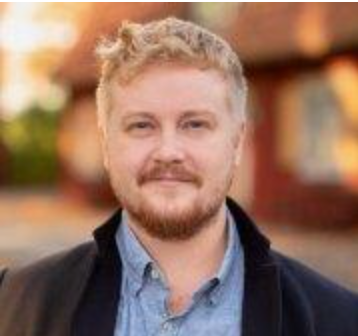Video
Novel Nonstimulant Therapy for ADHD
Author(s):
Transcript: Theresa Cerulli, MD: Let's look toward emerging treatments and future directions. It's always exciting to think about this topic. Andy, I know you've had a lot of involvement in the recent development of the serotonin norepinephrine modulating agent, SPN-812 [viloxazine hydrochloride]. Can you tell us a little bit about it?
Andrew J. Cutler, MD: Yes, I'd be happy to. SPN-812 is an extended-release version of a medication called viloxazine. Historically, viloxazine was approved overseas, in Europe, as an antidepressant agent. It was available for many years. It was found to be effective for depression, and was very safe and well tolerated. The problem was it was an immediate-release, short-acting preparation.
And so, a company called Supernus [Pharmaceuticals, Inc] has developed an extended-release preparation. It has been studied fairly extensively in children and adolescents. They've had positive data, and they submitted it last November to the FDA for consideration for approval for the treatment of ADHD [attention-deficit/hyperactivity disorder] in children and adolescents.
What is unique about it is its mechanism of action, which you alluded to; the drug is a serotonin norepinephrine modulating agent. It binds to certain serotonin receptors, and it has some moderate activity as a norepinephrine reuptake inhibitor. And what this combination has been shown to do in animal models is increase the release of serotonin, norepinephrine, and importantly, dopamine, in the prefrontal cortex, which is the part of the brain that we believe is critically affected by ADHD.
As I mentioned, these trials were positive studies at various doses in children and adolescents. Besides mechanism of action and efficacy, one of its advantages is this is a capsule with beads. We talked about a lot of stimulants that are formulated this way. You can open the capsule and sprinkle the beads on certain types of foods.
There is no available nonstimulant preparation that you can use for people who either can't or won't swallow pills. So this would certainly be a very important addition to our options. As I mentioned earlier when talking about other nonstimulants, they tend to be limited by inconsistent or inadequate efficacy, and there are some tolerability issues and some safety warnings.
It appears that you have efficacy with SPN-812, although it's certainly not as efficacious as the stimulants. We know that's a difficult bar to reach. But it also appears to have a somewhat unique tolerability and safety profile. Also, because we know it was effective and approved for treating depression, and the mechanism of action also predicts that it might be effective for anxiety, I'm excited about the possibility that this could treat 2 of the more common comorbidities with ADHD in children and adults, and that is depression and anxiety.
Theresa Cerulli, MD: What caught my attention was even having the word serotonin listed when we're discussing ADHD, right? Usually, we think about dopamine, norepinephrine. And so, I'm really excited to hear more about this. Is there anything you want to add that is of most interest to you with this particular compound?
Andrew J. Cutler, MD: Well, there are a couple of things. As I mentioned, and you hit the nail on the head, this would be the first medication that we know of that is approved that clearly also increases serotonin in addition to norepinephrine and dopamine. That may be involved in the pathophysiology of ADHD that we don't talk much about, but also certainly in the comorbidities of depression and anxiety. I'm excited about the fact that it could treat these comorbidities.
We now have a different mechanistic option, and it is multimodal. Most of our other agents are reuptake inhibitors. The alpha-2 agonists do bind to norepinephrine receptors, but here we have a combination of a norepinephrine reuptake inhibitor with a drug that is binding to receptors.
I think that since this is a complicated illness, as we talked about before—it's heterogeneous and it's complicated biologically and neurobiologically—it's very important to have more sophisticated medications that can perhaps work on some of the various regions of the brain and help restore some of the circuitry and improve the circuitry that is involved as well.
Transcript Edited for Clarity





